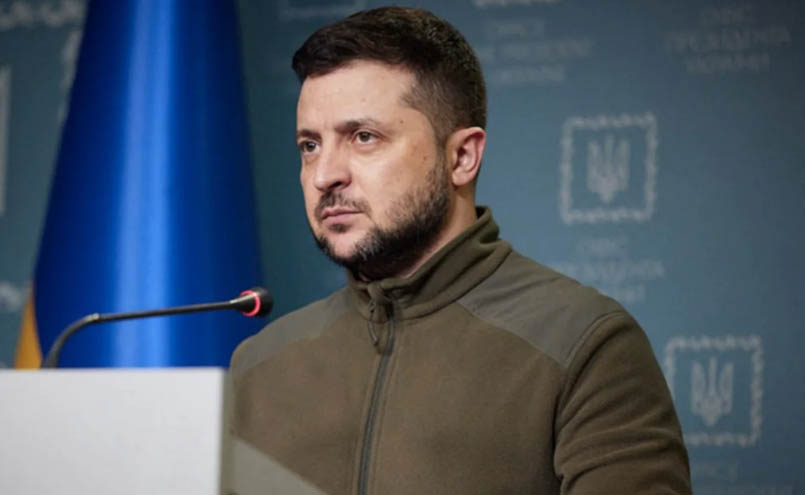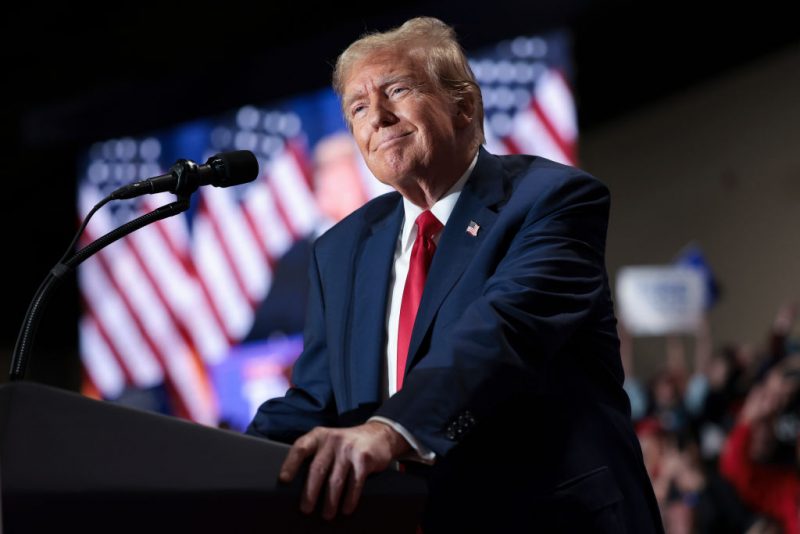As widely expected, Volodymyr Zelensky’s visit to the U.S., while not a total disaster, fell far short of his expectations. His so-called ‘victory plan’ was dismissed as little more than an impractical “wish list.” His speech to the UN General Assembly was met with largely empty seats, and as TGP reported, he ended up pleading for a meeting with Republican candidate Donald Trump.
German magazine Spiegel described Zelensky’s U.S. trip as filled with “humiliation and horror” and noted his tense encounter with Trump. The magazine highlighted Zelensky’s visibly uncomfortable demeanor, describing the “horror on his face” during the meeting.
According to Spiegel, the meeting in New York was “chilly” and made it clear there was “no chemistry between the two men.” The magazine wrote, “You could literally see the discomfort on Volodymyr Zelensky’s face as he stood in front of the cameras next to Republican presidential candidate Donald Trump in New York on Friday.”
Spiegel attributed Zelensky’s grimace to his unease over Trump’s comments that Putin wants a “fair deal” and is prepared to end the war, coupled with Trump’s assertion that he has a “very good relationship” with Putin.
However, there may be a more plausible explanation: Zelensky could be making impossible demands as a way to frame the West as “traitors” to Ukraine. The Spectator delves into the growing disconnect between Zelensky and his Western allies—and even within Ukraine itself—regarding what a realistic ‘victory’ would mean for the country.
“Zelensky insists that the bottom line for a Ukrainian victory remains ‘the occupation army [being] driven out by force or diplomatically, in such a way that the country preserves its true independence and is freed from occupation.’ He has also rejected any ceasefire, stating that a ‘freezing of the war or any other manipulations… will simply postpone Russian aggression to a later stage.’ Despite Russia’s steady advances in Donbas, Zelensky and his team continue to talk about winning.”
Even Washington’s most hawkish voices are now focusing on consolidating the front lines and preparing for peace talks. The goal is to give Kyiv a “strong position on the battlefield so that they are in a strong position at the negotiating table.” Most of the current aid is directed toward rebuilding Ukraine’s energy grid, providing humanitarian assistance, and demining efforts.
In addition to military aid, Zelensky’s “Victory Plan” is expected to demand permission to use Western-supplied missiles against targets inside Russia, as well as expedited NATO and EU membership. As The Spectator notes, “By Zelensky’s […] logic, anything short of the expulsion of Russian forces from all territory occupied since 2014 constitutes a ‘defeat.’ Thus, Ukraine must keep fighting until that is achieved, by any means necessary, including, as Ukraine’s new foreign minister Andrii Sybiha suggested, drafting some of the million Ukrainian men who have fled abroad. There can be no peace, in other words, without reconquest and punishment of the aggressors.”
However, within Ukraine itself, a narrative emphasizing peace and security over victory and justice is beginning to take hold, as the reality of territorial partition sinks in.
“Is Zelensky simply naive in continuing to insist that Ukraine can return to its pre-war borders—or is he, as some domestic critics suggest, crafting a narrative of Western betrayal that will allow him to enter talks with Russia without losing face?” Ukraine’s former prosecutor-general Yurii Lutsenko believes Zelensky’s ambitious demands are designed to be rejected. Without the missiles, planes, and NATO membership he requests, Zelensky can argue that Ukraine has been abandoned by its allies, leaving negotiation as the only option.
“Some in Ukrainian society will view any ceasefire or armistice freezing the conflict along the line of control as a terrible betrayal—a peace without honor. Having a third party—the West—to blame could be a politically useful way for Zelensky to reconcile Ukrainians who demand peace with those who seek justice, possibly key to keeping the country governable post-war.”
 Telegram is where we really talk. Don't miss out!
Telegram is where we really talk. Don't miss out!







